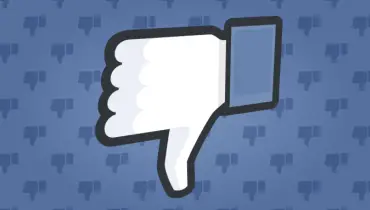Python vs PHP: Which Is Better and Why?
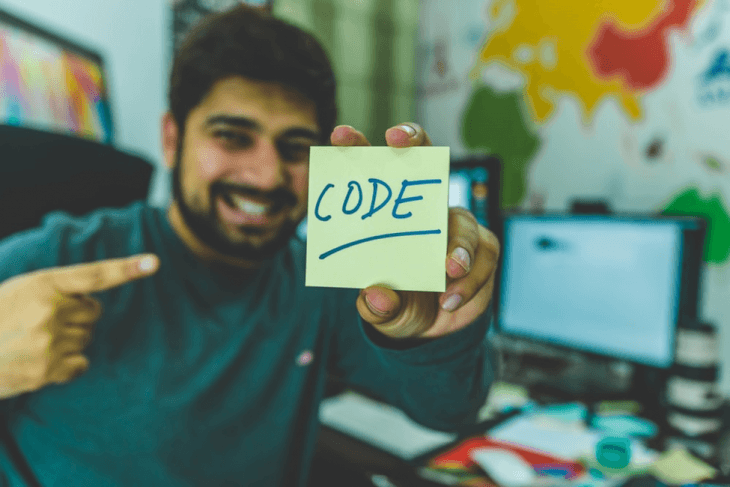
The debate about PHP versus Python is never-ending. This is because both languages are compelling and very accessible programming languages.
In this article, we'll share with you when and where you should use either language. First, for new developers, it is always a matter of confusion as to which backend framework to learn? Why should you even learn a server-side programming language?
With all businesses now needing a website and or mobile app - both of which connect to a server in the backend – a well-executed backend development service is one of the most important and sought-after skills in today's marketplace. This means backend developers are in high demand.
Companies are ready to pay high sums of money to capable developers to manage their websites’ backend properly. Learning these programming languages will make you capable of this task, too.
What Is Python?
Python is object-oriented and interpreted language and also it has high-level programming with dynamic semantics and built-in data structures combination.
With dynamic typing and binding, it makes a very attractive rapid application development. For connecting existing components, we can also use it as a scripting or glue language.
In other words, or in simple language: Python is a general-purpose programming language that you could use to create programs for your computer or web development.
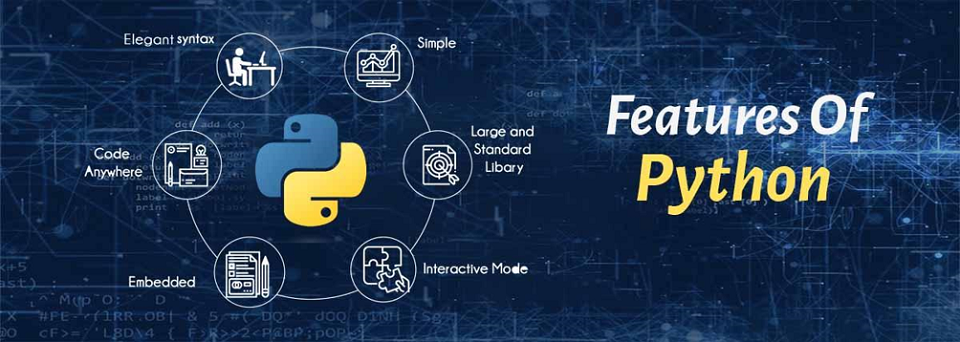
Python is a very versatile language that’s also prevalent in coding for machine learning, artificial intelligence, and data science.
What Is PHP?
PHP, on the other hand, is a programming language widely used for general-purpose scripting, and it is also an open-source language.
PHP is generally suitable for web development and we can also embed it into HTML. Its primary use case is as a backend language.
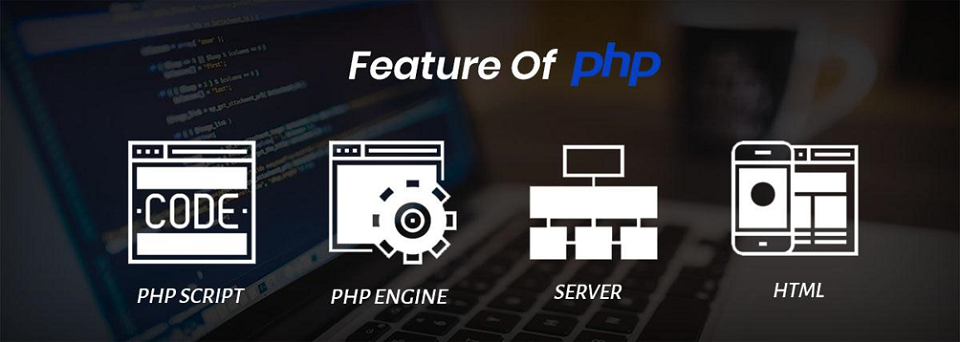
What About Market Share of PHP & Python?
PHP is the most widely used server-side coding language for developing websites. It hovers around 80% market share, according to usage statistics by W3Techs.
Python, on the other side, is a general-purpose programming language used in machine learning, artificial intelligence, and data science. Still, a smaller percentage use it for web development.
What About the Learning Curve?
If you are wondering how hard it is to learn either PHP or Python, the good thing is that both PHP and Python are generally easy languages to pick up.
Python is a relatively new programming language compared to PHP that has been around for years. And Python is without a doubt the easier of the two. Easy being a relative term for both languages.
Python is so simple to lean that most programming courses for beginners now use the programming language to teach fundamentals of programming.
Countless tutorials for both languages can be found online.
What About Coding in Either PHP or Python?
Although you’ll hear developers often say that Python is a more straightforward language to learn Python is stringent on how you format your code. The code format, however, also makes the programming language very easy to read and maintain.
PHP does not have strict code formatting like Python does. So, you're going to find there's a lot of different ways to format PHP code, and you are also going to find that there's a lot of PHP code out there that's not formatted well at all.
That's what makes it sometimes harder to read or to understand PHP. Still, there's a simple workaround for that; you could always format your PHP code in a certain way to your liking.
Most universities like to use Python for GIS (geographic information systems) when demonstrating how to code. GIS can help individuals to better understand relationships and spatial patterns.
Both PHP and Python languages have a lot of resources like websites that'll teach you the fundamental of how to code at boot camps, with YouTube videos, and you can even buy books.
It might seem kind of old school to buy coding books, but there is an extensive library of books on how to code available these days and you're also going to find a lot of code examples online.
A quick note: When coding, be careful with code you copy and paste online. Reverse-engineer the code locally if you can and test thoroughly before using the code on a production or live website. Also, watch out for outdated, inefficient, and insecure code. Remember to test locally.
What About PHP and Python Documentation?
Both PHP and Python have useful and high volumes of documentation and pages online where you see how to get started with the language, and where you can learn about the syntax code flow.
With the documentations, you'll see code examples and more. Combining the documentation pages with other online tutorials and resources will help you learn how to code in either or both languages fast.
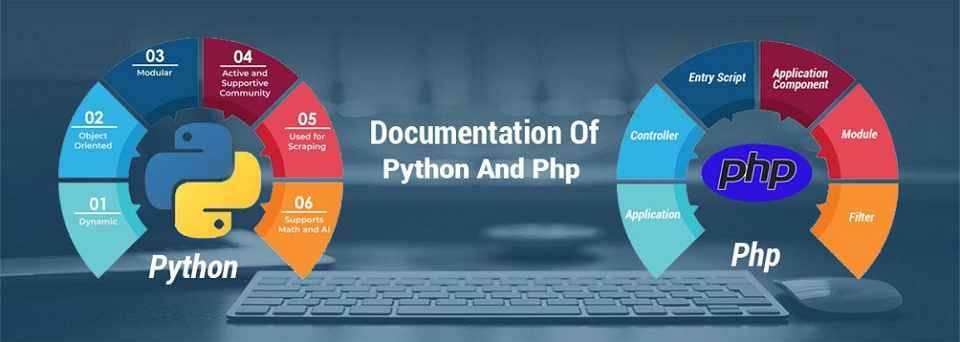
What About Community Support?
Both PHP and Python have large and very passionate communities. Even if you're learning by yourself, there's always somewhere online that you go to find you're not alone.
You can check out Stack Overflow, which is probably the most popular community among developers and programmers of both PHP and Python, as well as many other online forms.
What About Speed?
In PHP version seven and above, we've seen a lot of improvements that make it blazing fast.
Python code is fast as well, but typically not as quick as PHP.
Keep in mind that there are many factors that go into the speed of a website or apps, including code logic, hardware resources, and more. It’s not just the programming language alone that affects speed.
What About Pre-existing Codes for PHP and Python?
With PHP or Python or any language for that matter, you can always use custom code, such as vanilla code. By using pre-existing frameworks, libraries, and CMS's, you can cut back significantly on development time
Time is money, and for PHP, you have Laravel, Symphony, Codeigniter, WordPress, Drupal, Joomla, etc.
For Python, you have the Django, the Django CMS, Flask, Web 2 pi, Pylons pyramid, etc. There are lots of options for getting work done faster than writing all the code by yourself.
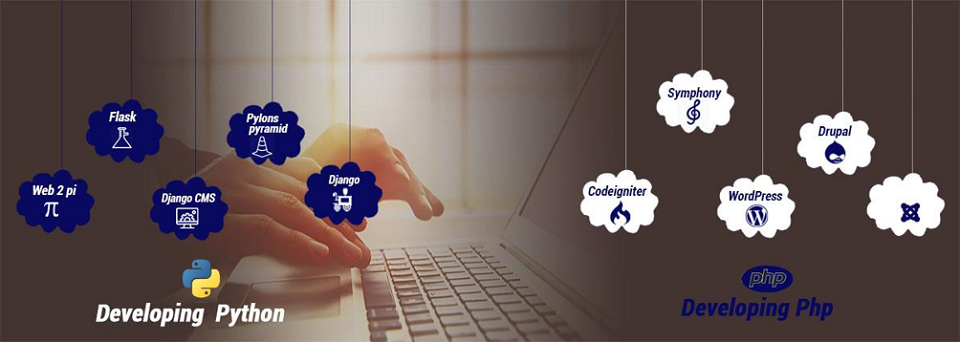
What About Package Managers?
Package managers are designed to eliminate the need for manual installs and updates, and they are vital to a productive workflow for Python you'd have Pitt and for PHP you have Composer.
What About Deployment and Hosting?
PHP comes with pre-installed on virtually all shared hosting servers and accounts, and it is easy to install on a VPS or dedicated server.
Python, on the other hand, will take a little bit more work to get started with, and we recommend using either Edunbox.com on a node which has excellent documentation pages on how to get started with Python on their website.
What About Making Money with PHP vs. Python?
A significant factor that a lot of coders consider is where the money is. Skilled Python developers tend to make more than experienced PHP developers.
The reason for that is because Python is used in the highly niche machine learning, artificial intelligence, and data science fields. These are fields that tend to have a lot of money behind them, even though there are also many more complex fields.
PHP developers can make a great living working either for large companies, agencies, startups and or as freelancers. PHP developers who focus on a particular framework or specific content management systems (CMS) can also make good money, depending on how they market their services.
Typically, the average Python developer in the US can earn $ $120K annually, while their PHP counterparts makes about $80,000 plus annually, according to data from popular job site Indeed.
There's no limit to how much money you can earn with either language, though. It's all about what you end up doing with that language. Think about Mark Zuckerberg, for example. when he created Facebook, he used PHP and now his worth is over 70 billion dollars.
Also consider Google co-founder Larry Page who's worth about 51 billion. Surely, anyone who's worth 50 billion for creating the Google search engine that’s powered by Python, prove you can certainly make a fortune as a developer using Python, PHP and other languages as well.
You can certainly make money as a developer. You don’t have to be a struggling coder. You can make a decent wage developing with PHP and or Python. Just make sure to work hard and smart; produce valuable products and the sky's the limit.
So, Which Language Should You Choose?
Which programming language should you learn and use of the two? The answer to that is very simple, maybe a little too simplistic.
If you want to focus on machine learning, artificial intelligence, and data science, then Python is the language to learn. If you're going to focus on creating dynamic web sites and apps, then PHP is the language you should learn.
It also depends on where you want to work. Companies are all over the place in terms of what languages they like to use. So, that’s something to factor. Most companies, however, use various programming languages for different purposes. It's like hiring contractors to work in your home when the contractors come over; do they just come with a hammer or a variety of tools.
In Conclusion
You should always strive to use the right tool for your job. Newer startups that are working with machine learning, artificial intelligence, and data science will often favor Python.
If your clients and employers such as design agencies and business website owners and other are using a CMS like WordPress, Joomla or Drupal, then PHP will reign supreme.
All in all, both PHP and Python are useful programming languages—compelling and accessible. I’d say try both out for a period of time and see which one you prefer.
Hopefully, this article is useful to you and points you in the right direction. If you found it helpful in any way, give it a big thumbs up and add your thoughts in the comments section down below.
Happy coding!



![9 Tips for Managing Your Online Writing Projects Efficiently [node:titile]](/sites/default/files/styles/thumbnail_rectangle/public/open-book-laptop-online-writing-tips.jpeg?itok=iq4PIT7b)




